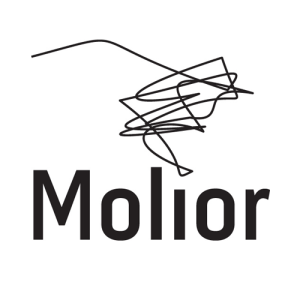Online
From April 22nd to May 2nd
Curator
Carmen Salas
Participants
Moderator
“The current state of the world requires a paradigm shift in the arts and in society as a whole. This calls for a re-evaluation and reconfiguration of the ways we live and operate, and the nurturing of more narratives and practices that help society, and the arts transition through these uncertain times. Unless we are willing to transform the systems that have produced the current socio-ecological crisis, we will be destined to coexist with recurrent and interconnected challenges. This is why, now more than ever, we need to use all of our creative capacity to imagine the changes we want to see in our personal and professional lives, and the world around us.” Carmen Salas.
Think Systems is a project conceived and curated by Carmen Salas (ES), which grew out of a series of conversations she had with artists and cultural workers during the pandemic, following the publication of her May 2020 article What should we expect from art in the next few years/decades? And what is art, anyway? . The project seeks to inspire artists and the cultural sector to think more systematically about the arts, society, and the world, so as to raise a greater awareness about the role they play in transitioning towards a more just and sustainable future.
Molior produced the project in collaboration with the Concordia University Research Chair in Critical Practices in Materials and Materiality.
Collaborative workshops
Four invitation-only collaborative workshops will take place online between April 22nd and May 2nd. The workshop group comprises participants from different backgrounds and regions around the world, including 6 artists and a multidisciplinary systems practitioner. The participants will collectively engage in reflecting on the interconnected challenges of the present day, as well as envisioning the future they want for art and society.
Artists also play a role in building a better future, either by encouraging reflection and innovation, contributing to creative research, or raising awareness and promoting action-taking attitudes. The workshops will also provide room for sharing ideas about how artists can contribute their knowledge and creativity towards bringing about positive change.
The themes that run through these participants’ work include art and sustainability, social and climate justice, traditional systems critique, systems thinking, practices for transitions, art for action and change, radical learning, collective thinking and making, and collective imagination.
The group is made up of:
- Alice Jarry (CA)
- Amahra Spence (UK)
- Cassie Robinson (UK)
- Grace Samboh (Hyphen—) (ID)
- Miguel Braceli (LA ESCUELA___) (VE/US)
- Noémie Fortin (CA)
- Paola Palavidi (HYPERCOMF) (GR)
.
Public presentation and round table
Carmen Salas will be in Montreal to introduce the Think Systems project at the Transformation Through Artistic Practices: Imagining Socio-ecological Futures event on May 9th at the Biosphère | Espace pour la vie.
Her presentation, entitled Think Systems: Transformation Through Systemic Thinking, will take place at 1:45 p.m. and will be followed by the Think Systems: Unfolding Collective Reflections on Art and Systems Thinking round table, featuring several participants from the collaborative workshops.
Publication
An online publication, edited by Carmen Salas will follow the collaborative workshops. Stay tuned!
Carmen Salas
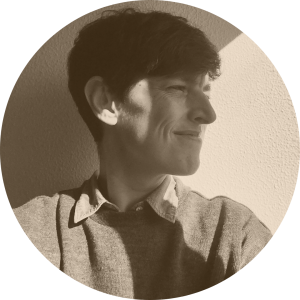
Carmen Salas works as a curator and cultural producer on an international scale. She holds a BA in History of Art from Granada University (Spain), and an MA in Arts Policy and Management from Birkbeck University, London.
A key part of her practice is working with artists and institutions to explore change through a lens of creative experimentation, collective reflection and debate. Exploring the capacity of the arts and culture in questioning societal systems and in bringing about change is central to her work.
After more than 15 years examining the creative and critical use of technology, and the intricacies of the internet, Carmen reoriented the focus of her work to narratives and approaches more mindful of the rapid social and environmental changes we face today. Most recently, she’s been involved in exploring the relationship between art, systems and change, as well as the need to advocate for a different value framework for the arts; one in which the key outcomes are people, relationships and the health of the planet.
Curiosity, purpose, and connecting people from different walks of life motivate her work. By creating structures for knowledge exchange, Carmen believes social innovation and personal transformation can occur more easily. Her passion lies not only in the arts, but also in all areas that reveal the reciprocal connections of the human condition such as science, philosophy, sociology.
Carmen founded Connecting the Dots, an international forum based in Mexico City focused on creativity, art, and digital culture, and has worked as creative director since 2018. Between 2017 and 2019 she curated the Paradigm Shift Forum for the Mapping Festival in Geneva. In 2009 she co-founded Alpha-ville in London, an international festival dedicated to exploring the intersection between art, technology and digital culture, which became a curatorial agency and creative studio in 2011 and developed activity on a national and international scale until 2017.
She has recently co-curated the exhibition “Sea Blindness” for NeMe Arts Centre in Limassol, Cyprus. Since 2021 she has been advising the 2026 Trenčín European Capital of Culture team on their artistic and cultural strategy. From mid 2024, she will be leading the production and implementation of two projects as part of the Trenčín European Capital of Culture program.
Participants
Miguel Braceli | LA ESCUELA___
Artist
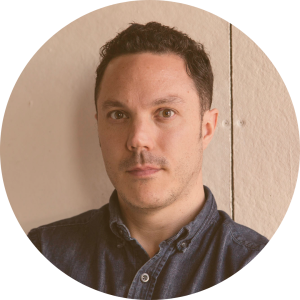
Miguel Braceli is an interdisciplinary artist working at the intersection of art, architecture, and social practices. Exploring geopolitical and local conflicts, his practice focuses on participatory art projects in public space. Most of these projects have been large-scale works developed in Latin America, Europe, and the United States. He has led educational and artistic projects with institutions such as The Bronx Museum of Arts, the MUAC-UNAM along with the Hemispheric Institute in NYC, Matadero Madrid, and Pace Gallery. He has participated in residencies and programs such as the MacDowell Fellowship (2023) Skowhegan School of Painting (2022), AIM Bronx Museum Fellow (2022), Art Omi (2021), and McColl Center for Art (2020). His most recent recognitions are a Fulbright Scholarship (2020-2019) and Young Artist Award of the Principality of Asturias (2018). In 2021, he founded LA ESCUELA___ together with the non-profit Siemens Stiftung International. In 2022, he received a commission from the Percent for Art program for a permanent large-scale public artwork in New York City.
LA ESCUELA___ is an artist-run platform for radical learning and collective making in public spaces. They understand art as a form of knowledge production, and education as an artistic practice in itself. La Escuela seeks to bring learning and art to everyone by partnering with universities, institutions, and communities to create formative projects in public spaces throughout Latin America. La Escuela is rooted in a long genealogy of Latin American artists and educators who seek to bring education closer to real contexts, so as to learn and act on them. Through public learning, they propose a transdisciplinary programme where diverse forms of practices coincide through the transformative capacity of education.
Noémie Fortin
Independent curator and art critic
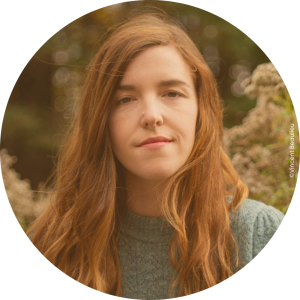
Noémie Fortin is an independent curator and writer living with her family in the Eastern Townships, on the traditional and unceded territory of the W8banaki Nation. Attuned to practices grounded in ecofeminist thinking, her research focuses on art that moves outside of institutions to engage with territories and communities, particularly in rural areas. Her most recent curatorial projects were presented at the Foreman Art Gallery, the 3e impérial, RURART, and Manif d’art 11. Her writing has been published in a number of art magazines including Esse arts + opinions, Vie des arts, and Espace art actuel. As a cultural worker, she has contributed to the development of educational programs for the ArtLab and the Grantham Foundation for the Arts and the Environment.
Dr. Alice Jarry
Associate professor, Design & Computation Arts
Concordia University Research Chair in Critical Practices in Materials and Materiality
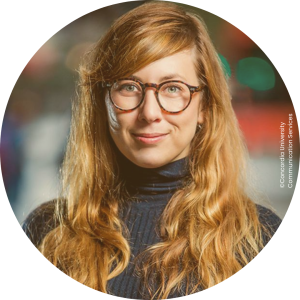
Dr. Alice Jarry is Associate professor of Design and Computation Arts at Concordia University. She is Research Chair in Critical Practices in Materials and Materiality, Co-Director of Hexagram – International Network dedicated to Research-Creation in Media Arts, Design, Technology and Digital Culture, and Director of the Milieux Institute Speculative Life Biolab. As an artist-researcher, she specializes in site-specific works, art-science practices and socio-environmental design. Her research brings concerns about aesthetics, and politics to bear critically upon material production and infrastructures. Focusing on residual matter and active biomaterials/composites for the built environment and the arts, Jarry examines how materiality – engaged in processes of transformation with site, technology, and communities – can provoke the emergence of resilient socio-environmental relations. Her works have been presented internationally at Centre George Pompidou, Planétarium de Montréal, Vox Centre de l’image Contemporaine, Biennale Nemo, Leonardo Da Vinci Museum of Science and Technology, Digital Arts Biennial, and Device_Art Triennale, among other locations.
Paola Palavidi (HYPERCOMF)
Artist
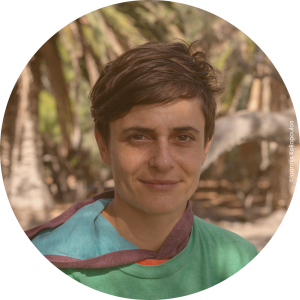
Paola Palavidi is an artist who lives and works on Tinos island in the Cyclades, Greece. She is the cofounder of the artist identity “Hypercomf”, a pseudonym under which she has been representing her artistic practice since 2017s. Paola Palavidi contributes to Hypercomf by mapping and implementing speculative design strategies, producing artwork based on community engagement and sustainability, and public workshop design and implementation. Her interests lie at the intersection between art, technology and nature, traditional and off-grid practices, building rural community resiliency in the face of rapidly changing times, off-setting the detrimental cultural and environmental effects of consumerist culture. In addition, she is an experienced farmer and beekeeper and a knowledgeable amateur botanist.
Cassie Robinson
Strategic Designer, Systems practioner
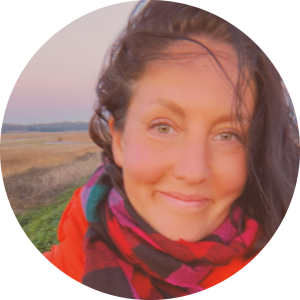
Cassie Robinson works as an Associate Director at both the Paul Hamlyn Foundation and the Emerging Futures at the Joseph Rowntree Foundation. In addition to these two roles she is working with Arising Quo, a transformative wealth redistribution project in Europe, in a field-building role with Partners for a New Economy globally and as a consultant to ClientEarth’s Innovation Lab. She’s the Co-founder of Stewarding Loss – supporting civil society organizations to die well, the Care + Climate cultural space in London, and The Point People.
She runs a Philanthropy in Transitions Lab for Philea and has Policy Fellowships at both the Institute of Innovation and Public Purpose and the Leverhulme Centre for the Future of Intelligence at Cambridge University. As a creative entrepreneur and strategic designer, she’s won awards from Nesta as a Creative Pioneer, an Ideas and Pioneers grant from Paul Hamlyn Foundation and a Leader in Philanthropy award from the European Foundation Centre. She holds a 1st Class BA hons in Fashion Design and Textiles, and an MSc in Applied Positive Psychology from UEL. Cassie is also certified as an ORSC practitioner, a CTI coach and has a certificate in energy chakra healing from the College of Psychic Studies.
Cassie currently has Board roles at Organise HQ and the Real Farming Trust, and is on the Strategy Group of the Funders’ Collaborative Hub. She teaches on the MSc in Ecological Design at Schumacher College, is on the Faculty of States of Change, and is one of the International Futures Forum Clan.
Until November 2021 Cassie was Deputy Director of Funding Strategy at The National Lottery Community Fund where she ran a £60 Million a year funding portfolio. She’s created an extensive archive of all the work, which tells her story and shares lots of resources too.
Grace Samboh (HYPHEN-)
Researcher, writer, curator
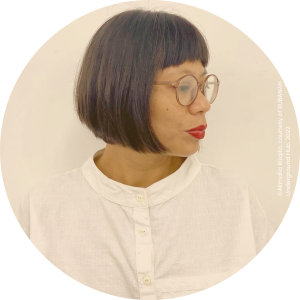
Grace Samboh (b. Jakarta) believes that everyone needs at least three copies of themselves. Because she considers the claim that Indonesia is lacking art infrastructure—especially the state-owned or state-run type—as something outdated, she jigs within the existing elements of the arts scene around her by way of research, writing, and curatorial work. She believes that curating is about understanding and making at the same time. She is attached to Hyphen— and affiliated to RUBANAH Underground Hub. She logs her writings at gracesamboh.net.
Amahra Spence
Artist, curator, cultural worker, strategist

Amahra Spence is an interdisciplinary artist, writer, curator and cultural worker from the West Midlands. Spanning across mediums, she explores the complexities of systems, the care and repair work necessary for world-building, while grappling with (in)justice from the roots. In her practice, she has collaborated with a wide range of organizations and communities, including architects, local authorities, universities, theatres, grassroots activists and neighbours. Previous works include Abuelo (2016), Concubine (2018), Utopia (2019) and Architectures of Abolition (2022). Amahra is also founding director of MAIA, an organisation engaging culture as a strategy to build community infrastructure oriented towards liberation, and organizer of Land Black, a spatial practice and speculative design studio working at the intersection of land, climate and racial justice.

Molior thanks the Bureau du Québec à Barcelone for its support.
